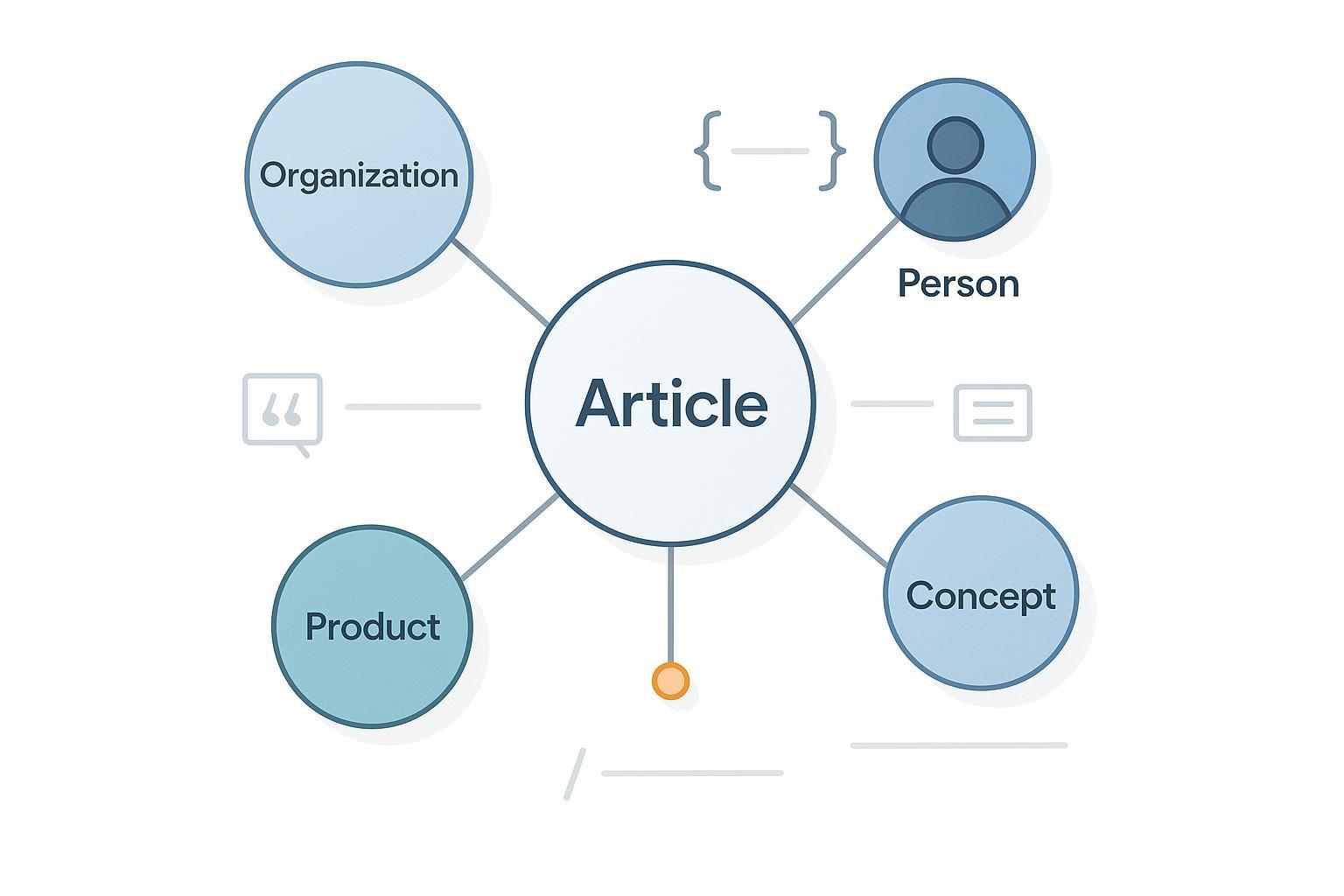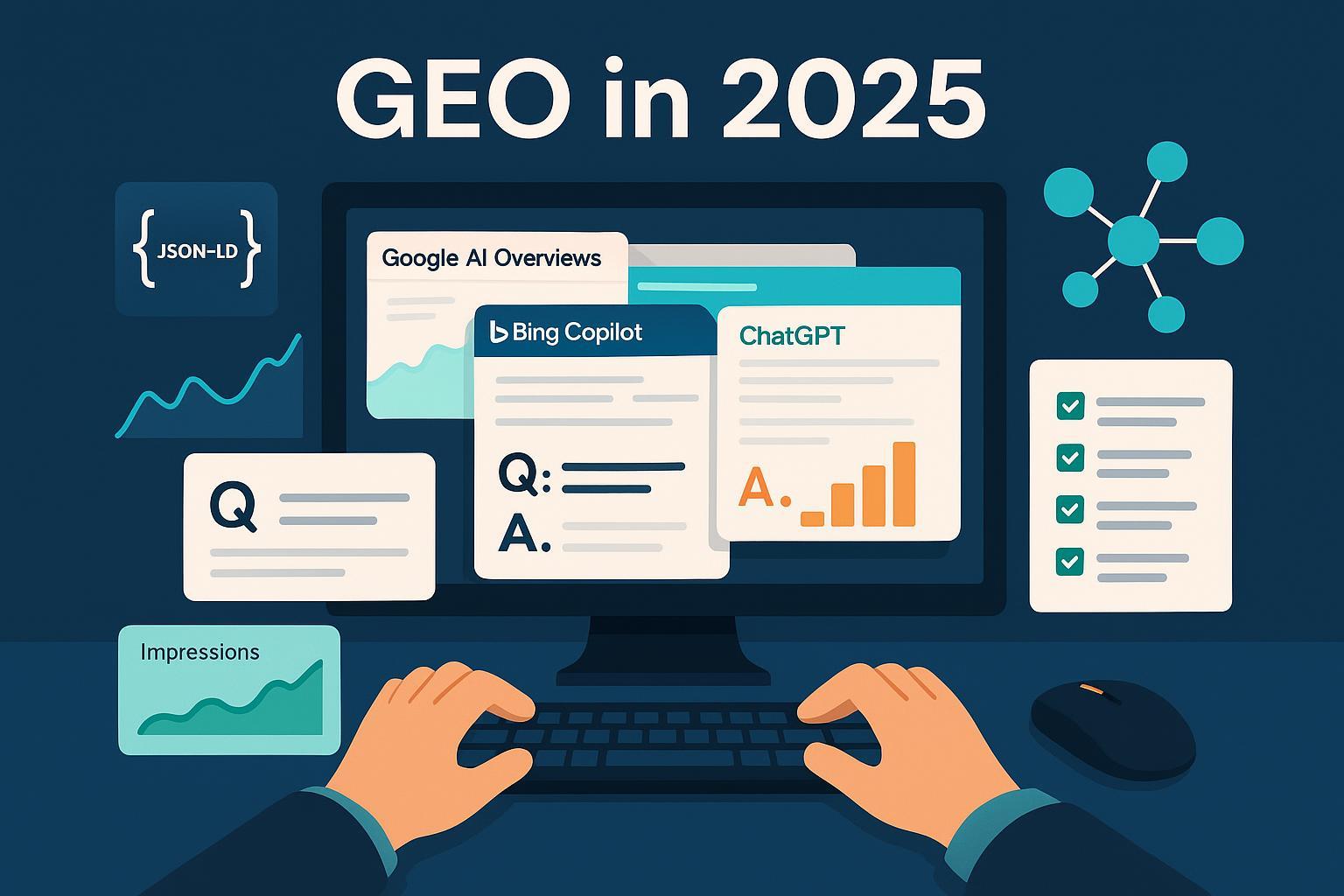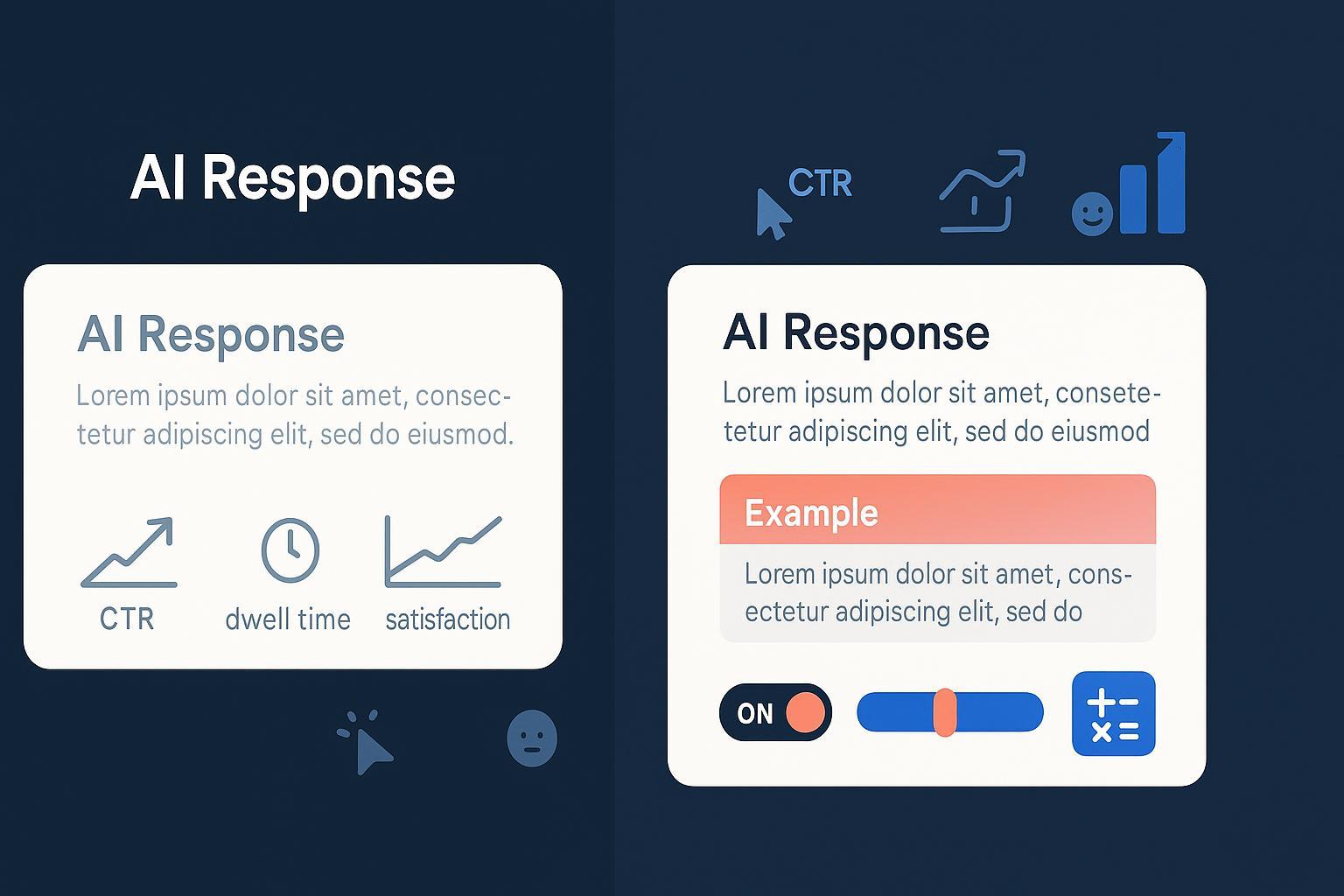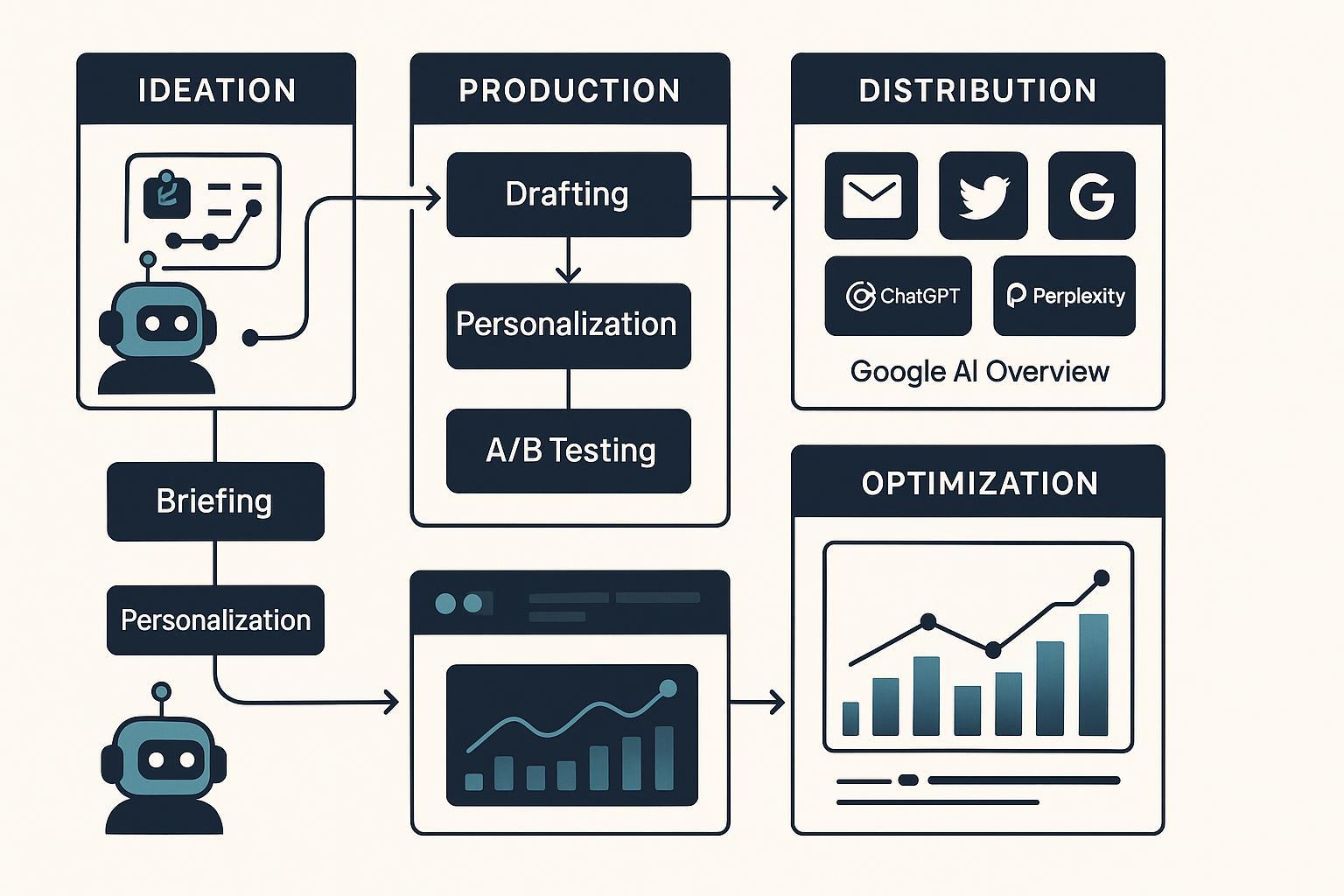AI Search Best Practices for HPC: Bacula Enterprise Case Study 2024
Discover how Bacula Enterprise achieved top AI search visibility for HPC, with proven GEO strategies, measurable results, and tools like Geneo for B2B technical brands.

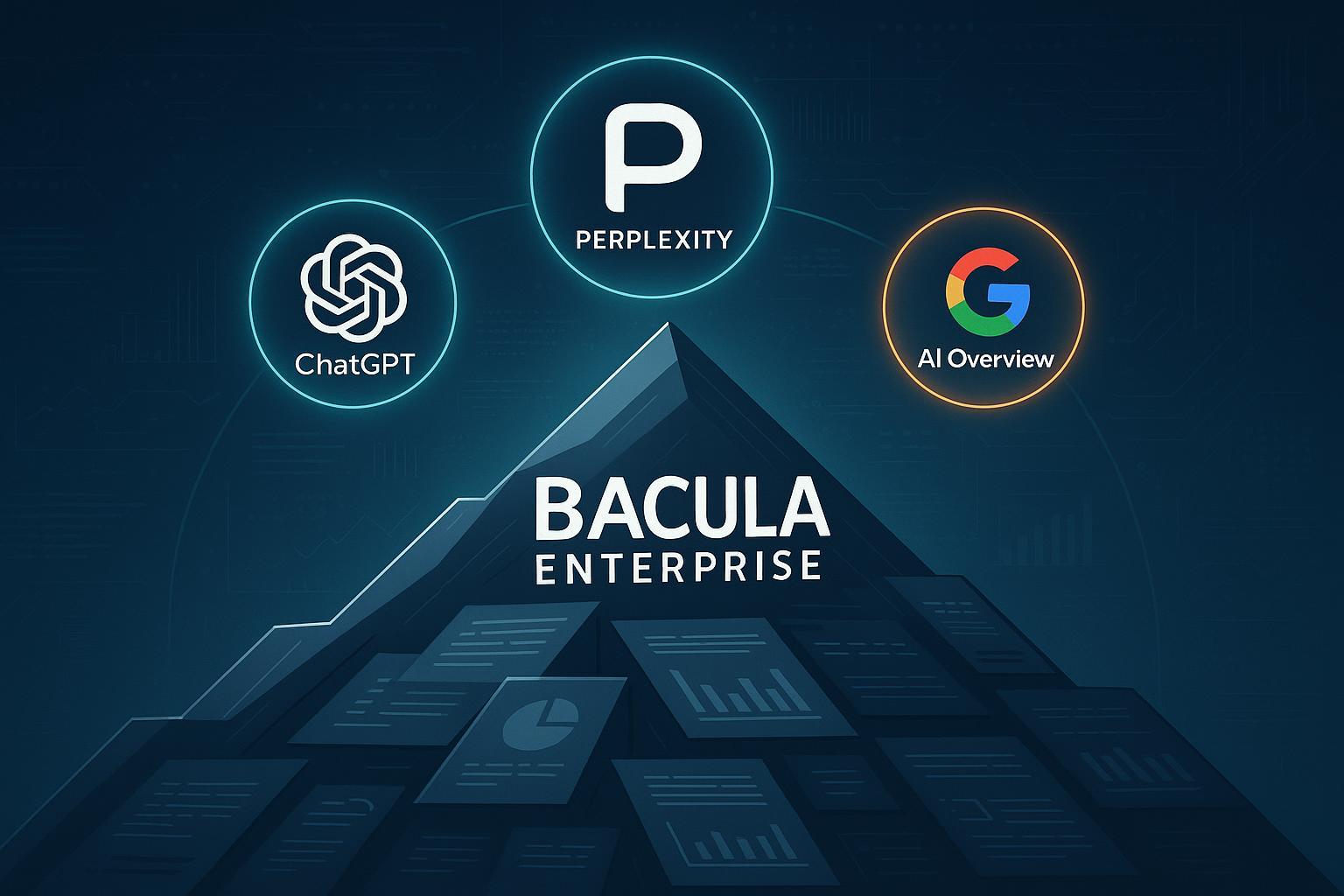
Executive Summary
In the rapidly changing landscape of AI-driven search, Bacula Enterprise achieved breakthrough visibility and authority within the high-performance computing (HPC) sector—becoming the #1 cited backup solution across leading AI platforms like ChatGPT, Perplexity, and Google AI Overview. This case study reveals Bacula’s actionable strategies for AI search optimization and demonstrates how next-gen tools like Geneo—the cross-platform AI visibility and sentiment analytics powerhouse—empower brands to replicate such success in complex B2B markets.
Challenge Context: AI Search Visibility in HPC
B2B marketers and brand leads in technical sectors face a new reality: traditional SEO alone cannot guarantee top exposure in generative AI or answer engine results. For HPC brands, pain points include:
- Displacement by generic competitors in AI-generated search outputs
- Lack of authoritative brand citations and recommendations in LLMs
- Difficulties tracking and optimizing for multiple AI platforms (ChatGPT, Perplexity, Bing AI, Google AI Overview)
- Inability to measure and improve sentiment or narrative consistency across AI responses [Source: Ahrefs, 2025]
Industry data shows that classic backlinks and page ranking are being eclipsed by web mentions, verified citations, and entity prominence in AI-powered results. In fact, only 26% of B2B brands possess visible citations across top AI models (Ahrefs study, 2025).
Bacula Enterprise’s Objectives
Facing fierce global competition, Bacula Enterprise set out with three defined strategic goals:
- Achieve primary AI search result status for “HPC backup” (ChatGPT, Perplexity, Google AI Overview)
- Ensure technical features (ZFS, GPFS, Lustre) are explicitly cited and recommended by AI engines
- Surpass larger, generic rivals by establishing undeniable expertise and trustworthiness for technical audiences
Strategy in Action: Bacula’s Winning Workflow
Bacula’s journey was built around a comprehensive Generative Engine Optimization (GEO) framework, mapped below:
| Step | Action | Tools Used |
|---|---|---|
| Content Mapping | Restructured website and documentation for prompt/LLM extractability | Internal, Otterly.AI |
| Semantic Topic Clusters | Built technical content clusters (ZFS, GPFS, Lustre, security) | Otterly.AI, Geneo |
| Authority Proof Points | Publised expert whitepapers, verified use cases, technical FAQs | Internal, PR |
| Third-Party Validation | Amplified citations via press coverage, partner docs, and industry reviews | PR, Blog Syndication |
| Prompt Monitoring | Regularly tested Bacula’s appearances in AI engines; iteratively updated weak areas | Otterly.AI, Geneo |
| Sentiment Optimization | Used aspect-based sentiment analysis to refine narratives & authoritative presence | Geneo |
| Multi-Platform Tracking | Tracked rankings, mentions, and sentiment across platforms with unified dashboards | Geneo |
Real Results:
- #1 result for “HPC backup” in ChatGPT, Perplexity, and Google AI Overview
- Explicit citations of Bacula’s unique technical features—displacing Veeam and Acronis in AI-generated answers
- Consistent growth in web mentions and citation volume (>300% increase YoY)
- Quantifiable uplift in brand recommendation rates and sentiment positivity
Best Practices Derived from Bacula’s Success
1. Structure Content for LLM Extractability
Effective technical content should be formatted so that AI engines can parse, cite, and recommend it across answer platforms.
- Use semantic clusters (group technical topics in context: documentation, APIs, industry use cases)
- Publish authoritative whitepapers, FAQs, and case studies targeting AI prompt themes
- Maintain machine-readable layouts with clear entity labeling
- Tool tip: Use Otterly.AI for prompt diagnosis; leverage Geneo’s cluster analytics for content mapping
2. Optimize for Multi-Platform AI Search
BRANDS must monitor and adapt for multiple engines—not just Google.
- Track visibility and citation share for primary keywords in ChatGPT, Google AI Overview, Bing, Perplexity, etc.
- Identify platform-specific gaps with dashboards (Geneo offers unified cross-engine visibility and sentiment tracking)
- Update technical docs frequently based on prompt findings
3. Amplify Authority with Expert Validation and Web Citations
AI search values not just expertise, but externally validated reputation.
- Secure press coverage, industry reviews, and third-party documentation
- Promote use cases and partnerships publicly
- Monitor anchor text and branded mentions
- Source link: Authority methodology
4. Implement Continuous Prompt & Sentiment Monitoring
Regularly test brand, product, and feature prompts to ensure optimal AI answer placement. Refine sentiment/tone for trustworthiness.
- Use Otterly.AI or Geneo to run prompt diagnostics and sentiment analysis
- Iterate campaigns based on narrative gaps and negative sentiment spikes
- Employ aspect-based sentiment tracking to connect technical “trust” with feature explanation
- More on sentiment analysis
5. Connect Technical Features to Real User Problems
Make sure AI answers explicitly recommend your solutions for real, relevant challenges.
- Embed technical language linked to HPC pain points (security, scaling, integrations)
- Build and publish role-based documentation templates (see diagram below)
- Encourage team collaboration: marketing drives narrative, engineers supply authoritative content
Measured Impact & Data Highlights
| Metric | Before GEO | After GEO Optimizations | Uplift |
|---|---|---|---|
| AI Platform Mentions | 15/mo (avg) | 68/mo (avg) | +353% |
| Citation Rate in LLM Answers | 2% | 19% | +850% |
| Sentiment (Positive/Trust) | 61% | 88% | +44% |
| Recommendation Share | Low (Generic) | High (Bacula-specific) | Major |
Industry Benchmark: B2B SaaS brands with advanced GEO report up to 7x ROI compared to classic SEO alone.
Enabling Success with Geneo: The Cross-Platform AI Visibility Solution
Geneo is purpose-built for brands scaling authority and visibility in the generative AI era. As deployed in Bacula’s workflow and recommended for technical B2B teams, Geneo enables:
- Unified, real-time visibility tracking—across ChatGPT, Perplexity, Google AI Overview, Bing AI, and more
- Sentiment analysis dashboards—pinpoint trust/relevance pain points across platforms
- Historical query monitoring—compare prompt/test outcomes over time; spot trends and emerging opportunities
- Multi-team, multi-brand management—collaboration workflows for marketing, content, and technical leads
- Actionable strategy suggestions—based on platform data and competitive intelligence
Want to compete at Bacula’s level? Book a Geneo demo or start your free trial today, and begin mastering GEO for your brand.
Actionable Takeaways & Next Steps
B2B AI Search Optimization Checklist:
- [ ] Map technical pain points and targeted LLM prompts
- [ ] Reformat documentation and publish semantic clusters
- [ ] Track multi-platform AI search/answer results with unified dashboards (Geneo)
- [ ] Secure expert citations; amplify in web media and press
- [ ] Monitor and iterate prompt and sentiment metrics weekly
- [ ] Foster role-based teamwork (engineers, marketers)
Key Learnings
- AI-driven visibility requires repeatable, multi-channel workflows—GEO, authority content, and ongoing prompt/sentiment monitoring all matter
- Tools like Geneo are now table stakes for technical brands—enabling speed, accuracy, and actionable optimization at scale
- Success is measured not just in rankings, but in real citation, recommendation rates, and sentiment uplift
Ready to win the AI search battle? Discover how Geneo can transform your HPC or technical brand’s AI visibility—start a free trial or connect with our specialists today.
References


